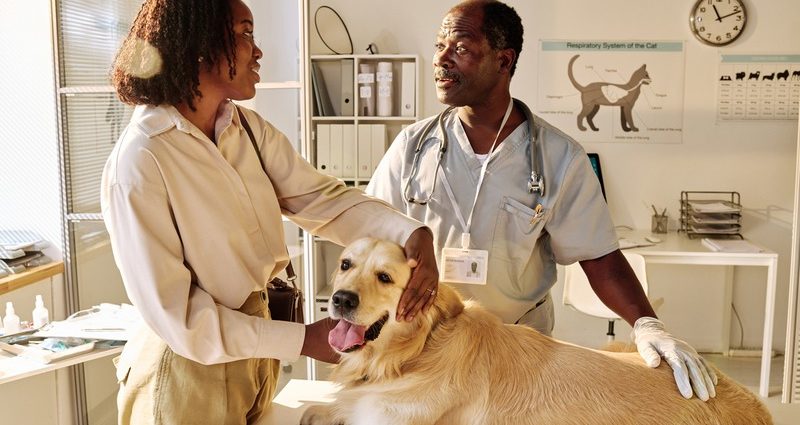As pet owners, we all love our furry friends and want to ensure they lead a long, happy, and healthy life. While we take care of their daily needs, such as feeding and grooming, it’s essential not to overlook their healthcare. One common question that arises among pet parents is whether annual vet exams are genuinely necessary for healthy pets. Let’s break down the importance of regular check-ups, what they entail, and how they can save you from heartache and hefty veterinary bills down the road.
The Case for Routine Check-Ups
When your pet appears to be the picture of health, skipping a vet visit might seem reasonable. However, regular wellness exams are vital for the following reasons:
-
Preventive Care: Your vet can catch early signs of diseases that may not be evident through a pet’s behavior or appearance.
-
Vaccinations: Keeping up with vaccines is crucial, and a routine exam is the perfect time to ensure your pet’s vaccination status is up to date.
-
Dental Health: Oral health problems can lead to other health issues, and a vet can spot these during an exam.
-
Parasite Control: Routine exams can help detect and treat external and internal parasites before they become a serious problem.
-
Nutrition: Vets can provide personalized advice on diet and weight management.
In short, these exams are an excellent investment in your pet’s overall well-being.
What Does an Annual Vet Exam Involve?
An annual vet exam is more than just a quick look at your pet. It’s a comprehensive health inspection that assesses your pet’s overall condition. Here’s what typically happens during these visits:
Thorough Physical Examination
The vet will check your pet from nose to tail – examining the skin, coat, eyes, ears, mouth, and teeth. They’ll also assess the heart, lungs, abdomen, and musculoskeletal system for any abnormalities.
Vaccination Updates
A pivotal part of these visits involves updating vaccinations to help protect against diseases. A pet vaccinations clinic will have the expertise and resources to advise which shots are needed based on your pet’s age, lifestyle, and local disease prevalence.
Parasite Prevention
Your vet will discuss and recommend products to prevent fleas, ticks, heartworms, and other parasites that can affect your pet’s health and comfort.
Diet and Nutrition
What your pet eats has a significant impact on their health. During the exam, the vet can provide expert guidance on proper nutrition and help craft a diet plan tailored to your pet’s specific needs.
Behavioral Assessment
Behavior changes can signal underlying health issues. The vet will ask about your pet’s behavior and offer advice or treatment options if you need them.
Spotting the Signs Early
Pets are adept at hiding pain and illness. Annual exams play a critical role in identifying issues that pets can’t communicate. This is especially true for certain conditions that benefit from early intervention, such as internal medicine for dogs. By diagnosing and treating diseases early, you’re giving your pet the best chance at a full recovery.
The Lifelong Health of Your Pet
Pets age faster than we do, and their health can change rapidly. Annual exams serve as a crucial checkpoint to adjust care as pets move through different life stages. From puppies and kittens to seniors, each phase of a pet’s life comes with its own set of vulnerabilities and health concerns.
Puppy and Kitten Care
The first year of life is foundational, with multiple vet visits recommended for vaccinations, spay/neuter procedures, and monitoring development.
Adult Pet Maintenance
During the prime years, annual exams help maintain good health and catch any deviations before they become serious.
Senior Pet Considerations
As pets get older, they may require more frequent check-ups. Vets can monitor age-related conditions like arthritis, organ function, and cognitive changes.
Choosing the Right Veterinary Care
Finding a vet you trust is paramount. Whether you’re new in town or seeking a better fit, visit experts from an HWY 5 animal hospital – establishments known for their compassionate care and comprehensive services.
Tailoring Vet Exams to Your Pet’s Needs
While annual vet exams are a good rule of thumb, some pets may need to be seen more or less frequently. Factors such as breed, age, health status, and lifestyle can influence the recommended frequency of vet visits. Always consult with your vet to determine the best schedule for your furry family member.
When to Visit Outside of Annual Exams
Sometimes, you may need to bring your pet in for unscheduled visits. If you observe unusual behavior, changes in appetite or water consumption, vomiting, diarrhea, or any other concerning signs, don’t hesitate to contact your vet.
Cost Considerations
Let’s face it: vet care can be expensive. However, consider the cost of preventive care versus the expense of treating advanced diseases or emergencies. Many pet insurance plans offer wellness options that cover annual exams, helping to manage expenses while keeping your pet healthy.
Final Thoughts
Regular vet exams are crucial for pets’ health, acting as preventive care. Although pets may look fine, hidden issues could exist. These yearly check-ups by professionals help catch problems early. Ignoring annual visits can make risks invisible to untrained eyes. Investing in these exams keeps pets healthier for longer, enjoying life with their owners. So, definitely take your pets for their annual vet exams—it’s important for their well-being.

